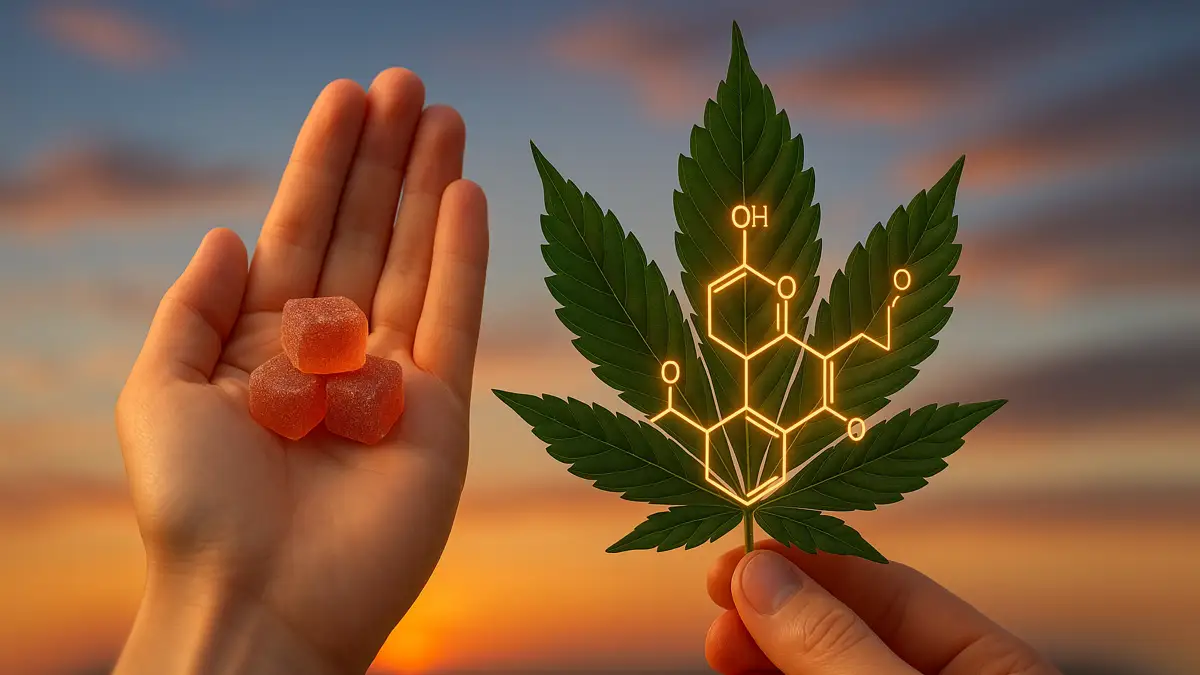October 21, 2024
The Connection Between Delta-8 and Anxiety: Can It Help or Hurt?

Delta-8 THC has emerged as a popular cannabinoid in recent years, often marketed as a "safer" or "milder" alternative to traditional cannabis. However, there are significant concerns regarding its safety, particularly for individuals who struggle with anxiety. In this article, we will explore whether Delta-8 THC can actually exacerbate anxiety symptoms, the potential risks involved, and why caution is warranted.
What is Delta-8 THC?
Delta-8 THC is a cannabinoid found in the cannabis plant, but in much smaller amounts compared to Delta-9 THC, the primary psychoactive component of marijuana. Delta-8’s slightly different chemical structure results in a milder psychoactive effect. Despite being less potent than Delta-9, Delta-8 can still produce significant mood-altering effects that may not be suitable for everyone, especially those prone to anxiety.
The Potential Risks of Delta-8 THC for Anxiety
While some proponents claim that Delta-8 can help alleviate anxiety symptoms, there is no solid evidence to support these claims, and using Delta-8 may carry more risks than benefits. Here’s why:
Psychoactive Effects Can Trigger Anxiety
Delta-8 THC is still a psychoactive substance, meaning it can alter perception, mood, and cognitive function. For individuals with anxiety disorders, these changes can actually worsen anxiety rather than alleviate it. Delta-8 anxiety may manifest as increased nervousness, paranoia, or even panic attacks, particularly in those who are sensitive to THC.
Inconsistent Product Quality and Potency
The lack of regulation in the Delta-8 market means there is a risk of inconsistent product quality. Some Delta-8 products may contain higher levels of THC than advertised or include contaminants that can contribute to negative side effects. Poor-quality products can exacerbate anxiety symptoms due to unexpected potency or the presence of harmful substances.
Risk of Developing a Tolerance and Dependence
Regular use of Delta-8 can lead to the development of tolerance, where higher doses are needed to achieve the same effects. This can increase the risk of dependence and may worsen mental health symptoms over time. Quitting Delta-8 after prolonged use may result in withdrawal symptoms, including increased anxiety, restlessness, and irritability.
Common Signs of Delta-8-Induced Anxiety
For those who are sensitive to THC or have underlying anxiety disorders, Delta-8 may worsen symptoms. It’s important to recognize the signs of Delta-8 anxiety and discontinue use if these symptoms occur:
- Increased heart rate or palpitations
- Feelings of panic or nervousness
- Paranoia or heightened alertness
- Restlessness or agitation
- Difficulty concentrating
If you experience any of these symptoms after using Delta-8, it may be time to consider stopping use and exploring safer alternatives for managing anxiety.
Alternatives to Delta-8 for Anxiety Management
If you’re looking for ways to manage anxiety, there are safer and more effective options than Delta-8 THC. Here are some alternatives that do not carry the same risks:
Cognitive Behavioral Therapy (CBT)
CBT is a well-established therapeutic approach for managing anxiety disorders. It focuses on identifying and changing negative thought patterns and behaviors that contribute to anxiety.
Mindfulness and Meditation
Mindfulness practices, such as meditation, can help reduce anxiety by promoting relaxation and improving emotional regulation. These techniques offer a natural way to manage stress without the need for psychoactive substances.
Non-Cannabinoid Supplements
Some natural supplements, such as L-theanine, magnesium, and valerian root, have been shown to help alleviate anxiety symptoms without the risks associated with Delta-8.
Prescription Medications
For individuals with more severe anxiety, prescription medications such as selective serotonin reuptake inhibitors (SSRIs) may be an effective option. These medications are designed to treat anxiety disorders and are prescribed by healthcare professionals with safety in mind.
Delta-8: Not a Safe Solution for Anxiety
While Delta-8 may be marketed as a "gentler" form of THC, it still carries the potential for significant side effects, especially for those with anxiety disorders. The psychoactive nature of Delta-8, combined with the unregulated market, makes it a risky choice for anyone looking to manage anxiety. Instead of turning to Delta-8, consider safer, evidence-based approaches that address anxiety without the potential for harmful effects.
Conclusion
The relationship between Delta-8 THC and anxiety is complex, with a high potential for adverse effects rather than relief. While some people may report mild relaxation, the risks of experiencing Delta-8 anxiety, dependence, or exposure to harmful substances far outweigh any perceived benefits. It is important to prioritize safe, evidence-based treatments for anxiety. If you are struggling with anxiety and need help finding a safer path, consider seeking professional guidance from a treatment center like Dilworth Center.








